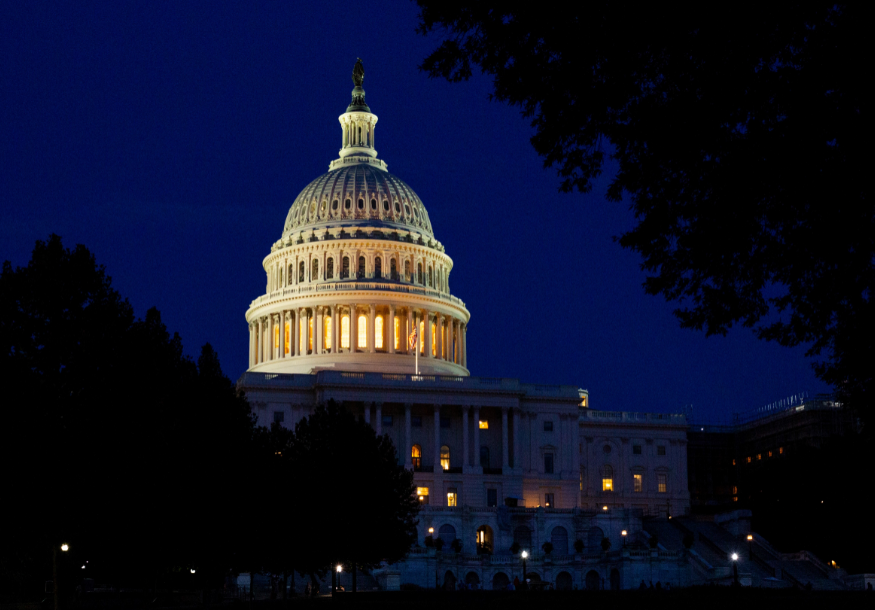Congress Considers More Waivers for Foreign Physicians in Face of Shortage

The COVID-19 pandemic has brought healthcare to the forefront of the American mind, and it’s revealed some areas for improvement. For one, it raised the question of how the U.S. plans to handle the increasing shortage of physicians in the country. The Association of American Medical Colleges predicts that the U.S. “will have a shortage of up to 139,000 physicians by 2033” (The Guardian).
One solution to the problem could be set in motion this year; legislation currently being considered in Congress would allow 40,000 physicians from across the globe to continue their medical careers in the U.S. permanently.
The Healthcare Workforce Resilience Act (S.1204) is a bipartisan bill that proposes giving green cards to thousands of immigrant healthcare professionals. Advocates of the bill say that it is the U.S.’s best bet to come up with the thousands of physicians that the country will require in the coming years.
Many international physicians are issued J-1 visas, which are contingent upon being employed, making it difficult to move between different locations or employers. The difficulties that immigrant physicians face trying to establish residency in the U.S. motivate many to practice medicine in other countries. The passage of S.1204 would make the U.S. more enticing to international physicians looking to set up practice abroad.
Click here to read more from The Guardian.
Read MoreFederal Funds Allocated for Hiring Healthcare Workers

On Thursday, May 13, 2021, the Biden Administration announced that it will allocate $7.4 billion to hire public healthcare workers. Among other things, the funds will be used to start the Public Health Americorps, ease the burden on “‘overstretched'” health departments, hire school nurses and “‘modernize the public health workforce'” (The Hill).
The funding is part of the pandemic relief package that legislators passed earlier in March. Nearly half of the allocated funds will be used to alleviate the burden on health departments that are understaffed. Those hired will do “vaccination outreach, testing, contract tracing, and other tasks” (The Hill). An additional $3 billion will be used over a longer period of time to “‘modernize'” aspects of public health, including the creation of a grant program.
A small portion of the funds will be set aside to hire school nurses to assist with vaccinating children as COVID-19 vaccines are approved for younger age groups.
Click here to read more from The Hill.
Read MoreHHS Releases New Guidelines for Treating Opioid Use Disorder

The Department of Health and Human Services (HHS) recently released a new version of the Practice Guidelines for the Administration of Buprenorphine for Treating Opioid Use Disorder. The updated guidance removes the statutory training requirements for eligible physicians, physician assistants, nurse practitioners, clinical nurse specialists, certified registered nurse anesthetists, and certified nurse midwives to administer Buprenorphine, a medication for Opioid Use Disorder (OUD).
The decision to remove these certification requirements for eligible healthcare professionals is applauded by many healthcare organizations and workers as such requirements were cited as barriers around treating individuals with OUD. The hope is that the removal of training requirements will increase the access and use of Medication-based Opioid Use Disorder Treatment (MOUD).
According to data from the American Medical Association (AMA), opioid overdose deaths are surging in the U.S. The AMA’s latest Opioid Task Force Progress Report found that “illicitly manufactured fentanyl, fentanyl analogues and stimulants (e.g. methamphetamine, cocaine) are now killing more Americans than ever. The use of these illicit drugs has surged and their overdose rate increased by 10.1% and 10.8%, respectively.”
Click here to learn more about the guidance which went into effect on April 28, 2021.
Read MoreFDA Approves Pfizer Vaccine for Young Teens; States Plan for Hurdles Ahead

On Monday, May 10, the Food and Drug Administration (FDA) granted Pfizer’s COVID-19 vaccine emergency use authorization (EUA) for children aged twelve to fifteen years old. With right around 17 million children falling into this age bracket nationwide, the FDA’s decision is a milestone in the race to vaccinate America.
However, health and school administrators have expressed concern about the hurdles states will have to overcome to vaccinate younger teenagers. When vaccinating children as young as twelve years old, there is a “‘different level of sensitivity,'” said Nathan Quesnel, a school superintendent who spoke with The New York Times. Already, schools and health organizations are determining how to educate parents about the vaccine and reassure them that having their child vaccinated is the right decision.
It is expected that vaccination for children aged twelve to fifteen years will start by the end of this week. State sites are expecting and preparing for “an initial surge in demand”.
Pfizer has already expressed that it plans to seek a EUA for vaccinating children under the age of twelve sometime later this year.
Click here to read more from The New York Times.
Read MoreAMA Issues Report on COVID-19 and Medicare Spending

The American Medical Association (AMA) issued a report that summarizes the impacts of the COVID-19 pandemic on the spending and use of Medicare physician services. The report, which focused on the first half of 2020, highlights the stresses placed on physician practices across the country. Practices are still experiencing decreases in patient volume and revenue as well as increases in practice costs, according to the report’s findings.
In March and April of 2020, MPFS spending declined by as much as 57% and although spending recovered by the end of June in the same year, it was still 12% lower than previously expected. For the first half of 2020, it is estimated that Medicare physician spending was reduced by $9.4 billion.
The specialty that experienced the largest reduction in spending was physical therapists, who saw a 34% decrease. The average drop in revenue for practices across the nation was 32%.
Click here to read more.
Read MoreArizona Physicians Urge Residents to Continue Wearing a Mask

The Arizona Medical Association (ArMA) released a press release urging Arizonans to continue to wear a mask and follow CDC guidance as we respond to the COVID-19 pandemic. Vaccination efforts are ongoing, and do show progress, but physicians know it is imperative that Arizonans of all ages remain committed to reducing the spread until herd immunity is reached.
“While the vaccination numbers continue to rise, we must remain consistent in our effort to protect the most vulnerable from this virus and its variants,” stated Miriam Anand, MD, ArMA President. “Now is not the time for preventive measures to take a backseat in this fight. We hope that everyone will continue to follow CDC guidance as we navigate through what we hope is the end of this pandemic.”
Miriam Anand, MD, ArMA President
ArMA is the largest physician-led organization in Arizona and continues to provide physician input on public health measures with patients’ safety as the top priority. ArMA encouraged all Arizonans to practice protective measures against COVID-19 that include continuing to wear a mask in public, practicing physical distancing, and maintaining good hand hygiene, and if able, getting vaccinated.
Read MoreGovernment Banned from Requiring Proof of Vaccination

Governor Doug Ducey issued an Executive Order banning the government from mandating residents to provide proof of vaccination. The order bars state and local agencies and jurisdictions from requiring residents to provide a “vaccine passport” in any setting.
The Governor clarified that he strongly encourages Arizonans to get vaccinated, but does not feel that it is the role of the state to mandate vaccination.
“The residents of our state should not be required by the government to share their private medical information.”
Governor Doug Ducey
Private businesses, health care centers, daycares, and schools are exempt from the order however, any business that is in contract with the state is held to the order.
Click here to read more on this story.
Read MoreArMA Joins Physician Organizations in Asking for Veto of SB1456

Last week, the Arizona Medical Association joined the Arizona chapter of the American College of Obstetrics and Gynecology (AZ-ACOG), the Arizona Academy of Family Physicians (AAFP), and the Arizona chapter of the American Academy of Pediatrics (AZ-AAP) in asking Governor Ducey to veto SB1456.
The bill prohibits comprehensive, age appropriate, medically accurate sex education for Arizona children. Creating access to medically accurate, comprehensive sexuality education by using an evidence-based curriculum and reducing sociodemographic disparities in its receipt remains a primary goal for improving the well-being of teenagers and young adults.
The letter prompts Governor Ducey to veto the bill, calling on the importance of sexual education and outlining what an effective program would entail:
“Sexuality education should begin in early childhood and continue through a person’s lifespan… Programs should not only focus on reproductive development prevention of STIs/HIV, and unintended pregnancy, but also teach about forms of sexual expression, gender identity, healthy sexual and nonsexual relationships, communication, recognizing and preventing sexual violence, consent, and decision making. They also should include state-specific legal ramifications of sexual behavior and the growing risks of sharing information online.”
Letter to Governor Ducey
SB1456 impedes access to this important education and is therefore harmful to an adolescents/student’s health. Further, it promotes curriculum that excludes LGBTQ+ students, which contributes to an unsafe school environment. Click here to read the letter.
Read More